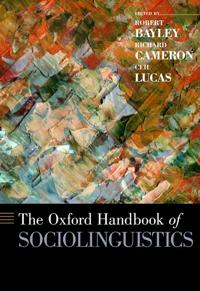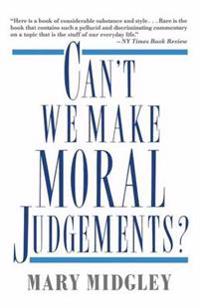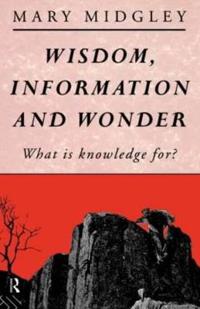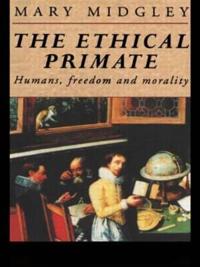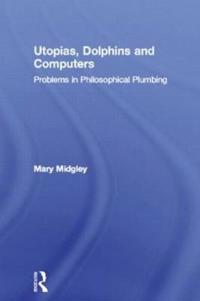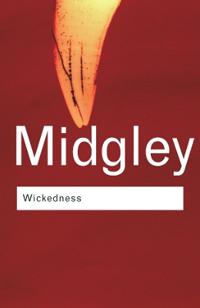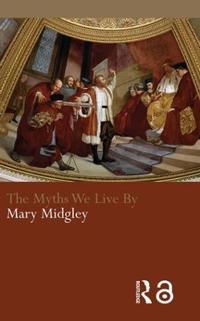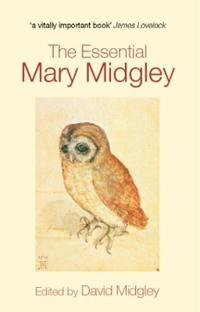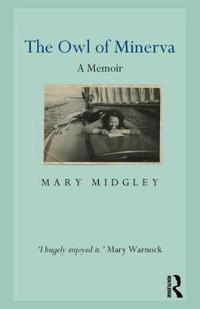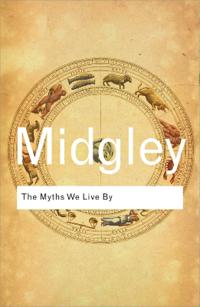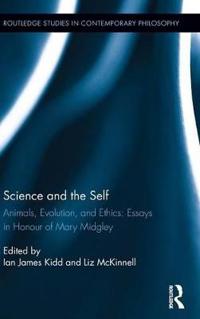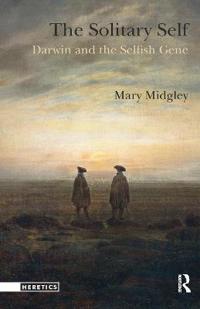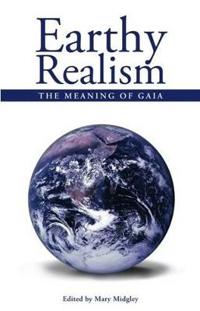The Oxford Handbook of Sociolinguistics (Inbunden)
avMary Midgley
ISBN: 9780199744084 - UTGIVEN: 201305From its beginnings in the 1960s, sociolinguistics developed several different subfields with distinct methods and interests: the variationist tradition established by Labov, the anthropological tradition of Hymes, interactional sociolinguistics as developed by Gumperz, and the sociology of language[...]
Can't We Make Moral Judgements? (Häftad)
avMary Midgley
ISBN: 9780312087265 - UTGIVEN: 1993-01In this book, Mary Midgely turns a spotlight on the fashionable view that we no longer need or use moral judgements. She shows how the question of whether or not we can make moral judgements must inevitably affect our attitudes to the law and its institutions, but also to events that occur in our da[...]
Wisdom, Information and Wonder (Häftad)
avMary Midgley
ISBN: 9780415028301 - UTGIVEN: 1991-05In this book one of Britain's leading philosophers tackles a question at the root of our civilisation: What is knowledge for? Midgley rejects the fragmentary and specialized way in which information is conveyed in the high-tech world, and criticizes conceptions of philosophy that support this mode o[...]
Science As Salvation (Pocket)
avMary Midgley
ISBN: 9780415107730 - UTGIVEN: 1994-03-31Midgley notes how science has developed high spiritual ambitions. From prophetic physicists have come speculations that go beyond the claims of any religion.[...]
The Ethical Primate (Häftad)
avMary Midgley
ISBN: 9780415132244 - UTGIVEN: 199603In The Ethical Primate, Mary Midgley, 'one of the sharpest critical pens in the West' according to the Times Literary Supplement, addresses the fundamental question of human freedom. Scientists and philosophers have found it difficult to understand how each human-being can be a living part of the n[...]
Utopias, Dolphins and Computers (Pocket)
avMary Midgley
ISBN: 9780415133784 - UTGIVEN: 2000-05Why do the big philosophical questions so often strike us as far-fetched and little to with everyday life? Mary Midgley shows that it need not be that way; she shows that there is a need for philosophy in the real world. Her popularity as one of our foremost philosophers is based on a no-nonsense, d[...]
Wickedness (Häftad)
avMary Midgley
ISBN: 9780415253987 - UTGIVEN: 200105To look into the darkness of the human soul is a frightening venture. Here Mary Midgley does so, with her customary brilliance and clarity. Midgley's analysis proves that the capacity for real wickedness is an inevitable part of human nature. This is not however a blanket acceptance of evil. Out of [...]
Evolution as a Religion: Strange Hopes and Stranger Fears (Övrig)
avMary Midgley
ISBN: 9780415278331 - UTGIVEN: 2002-02-21Midgley exposes the illogical logic of poor doctrines that shelter themselves behind the prestige of science. Always at home when taking on the high priests of evolutionary theory - Dawkins, Wilson and their acolytes - she has described evolution as "the creation-myth of our age". In "Evolution As A[...]
Beast And Man (Pocket)
avMary Midgley
ISBN: 9780415289870 - UTGIVEN: 2002-07-11In this major work, Mary Midgley, one of our foremost intellectuals tells us that humans are rather more like animals than we have previously allowed ourselves to believe.[...]
Heart and Mind: The Varieties of Moral Experience (Övrig)
avMary Midgley
ISBN: 9780415304498 - UTGIVEN: 2003-02-06With a new introduction by the author. It is a book of superb spirit and style, more entertaining than a work of philosophy has any right to be.' - Times Literary Supplement. Throughout our lives we are making moral choices. Some decisions simply direct our everyday comings and goings; others affect[...]
The Myths We Live By (Pocket)
avMary Midgley
ISBN: 9780415340779 - UTGIVEN: 2004-08Mary Midgley argues in her powerful new book that far from being the opposite of science, myth is a central part of it. In brilliant prose, she claims that myths are neither lies nor mere stories but a network of powerful symbols that suggest particular ways of interpreting the world.[...]
The Essential Mary Midgley
ISBN: 9780415346429 - UTGIVEN: 2005-09Feared and admired in equal measure, Mary Midgley has carefully yet profoundly challenged many of the scientific and moral orthodoxies of the twentieth century. The Essential Mary Midgley collects for the first time the very best of this famous philosopher's work, described by the Financial Times as[...]
Owl of Minerva (Storpocket)
avMary Midgley
ISBN: 9780415371391 - UTGIVEN: 2004-12One of the UK's foremost living moral philosophers, Mary Midgley recounts her remarkable story in this elegiac and moving account of friendships found and lost, bitter philosophical battles and of a profound love of teaching. In spite of her many books and public profile, little is known about Mary'[...]
Science And Poetry (Pocket)
avMary Midgley
ISBN: 9780415378482 - UTGIVEN: 2006-02-01Science can answer any question we choose to put to it, even the most fundamental about ourselves, our behaviour, and our cultures. The author here, puts forth her corrective view that without poetry or literature, or music, or history, or even theology we cannot hope to understand our humanity.[...]
The Myths We Live By (Storpocket)
avMary Midgley
ISBN: 9780415610247 - UTGIVEN: 201104With a new Introduction by the author 'An elegant and sane little book. -- The New Statesman Myths, as Mary Midgley argues in this powerful book, are everywhere. In political thought they sit at the heart of theories of human nature and the social contract; in economics in the pursuit of self inter[...]
Science and the Self: Animals, Evolution, and Ethics: Essays in Honour of Mary Midgley
ISBN: 9781138898387 - UTGIVEN: 2015-09Mary Midgley is one of the most important moral philosophers working today. Over the last thirty years, her writings have informed debates concerning animals, the environment and evolutionary theory. The invited essays in this volume offer critical reflections upon Midgley s work and further develop[...]
The Solitary Self (Häftad)
avMary Midgley
ISBN: 9781844652532 - UTGIVEN: 201009Renowned philosopher Mary Midgley explores the nature of our moral constitution to challenge the view that reduces human motivation to self-interest. Midgley argues cogently and convincingly that simple, one-sided accounts of human motives, such as the 'selfish gene' tendency in recent neo-Darwinian[...]
Earthy Realism (Pocket)
avMary (EDT) Midgley
ISBN: 9781845400804 - UTGIVEN: 2007-04goddess, is the notion that the Earth and the life on it form an active, self-maintaining whole. By its use of personification it attacks the view that the physical world is inert and lifeless. It has a scientific side, as shown by the new university departments of earth science which bring biology [...]

